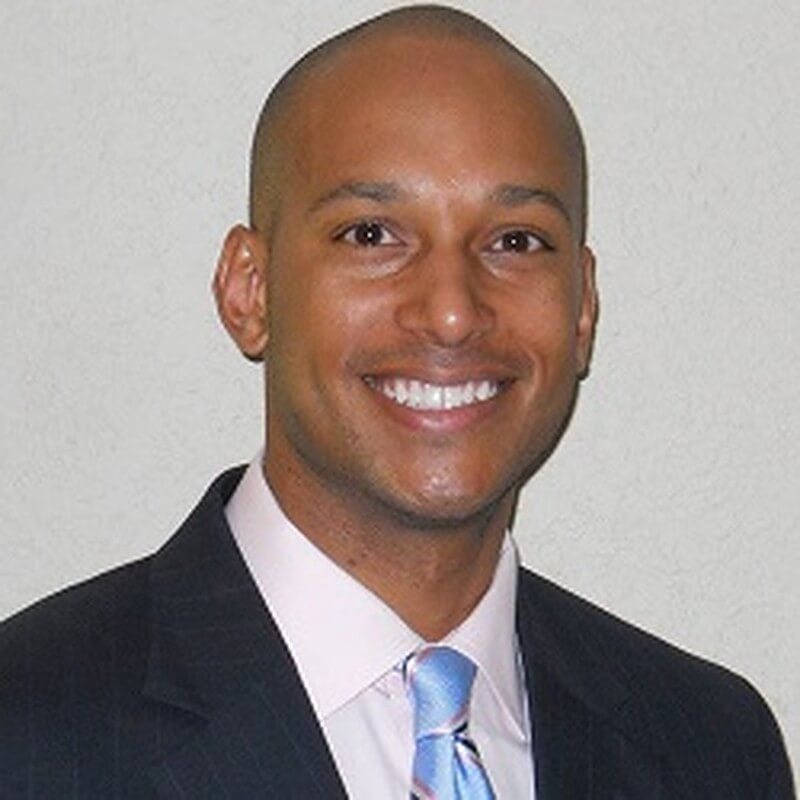Randall Hunt is no stranger to tackling and overcoming adversity. Growing up in Compton, CA, Randall fell in love with golf by watching tournaments on television. Unable to afford lessons, he instead taught himself the sport through hours of research at his local library, followed by countless days hitting balls on dirt fields to practice. His innate talent quickly shone through, and Randall became one of the world’s top junior golfers. Because of this impressive accomplishment, Randall earned a full scholarship to a Division 1 NCAA national championship program at Pepperdine University in California.

Randall had the world at his fingertips when an unfortunate car accident threatened to derail everything he had worked so hard for. Randall severely damaged his right arm in the accident, and medical professionals advised him to seek another career path. Just as he had in the past, Randall Hunt saw this obstacle as a challenge and set out to find the solution on his own. He consulted with the best neurosurgeons in the field and took part in every surgical and therapeutic option available at the time. Although partial use of his arm returned, Randall was still living with chronic pain. He decided to try even harder to come up with a solution.
Randall returned to the comfort of his research and poured over countless books in medical libraries. He learned everything he could about human anatomy in the process. Randall also explored alternative treatments for chronic pain, including acupuncture and chiropractic care and personal training. His path veered him closer to the concept of stimulating muscle and nerve growth until he ultimately developed his proprietary technology that was a culmination of everything he had learned. Bionetics was officially born and his arm healed––pain-free.
Today, Randall Hunt is the CEO and Founder of Athletic Apex. Among other services, clients receive in-depth interactive assessments to determine exercise regimes. An off-shoot program, Golfnetics, has been embraced by every major golf tour in the U.S.
Randall Hunt on Strategies For Becoming a Successful Entrepreneur
A successful entrepreneur understands there are many cautionary roadblocks and hurdles to conquer before someone realizes their dream. Statistically speaking, approximately 25% of all start-ups fail within the first five years. The majority of the reasons behind these failures lie in poor money management, but there are other reasons.
Before embarking on a solo business venture, it is vital to research your target market and your competition thoroughly. This is becoming more of a challenge these days because the advent of technological advances has made previously single-purpose items into multi-purpose ones that branch into other industries. Smartphones are the perfect example of a gadget that has made innumerable other ones obsolete. During your due diligence about your product, it’s essential to think ahead into potential futures where you might have to adapt and evolve as things change. Successful CEOs know they can never relax and industries can morph into something else seemingly overnight. Staying educated and reading all of the journals and publications in your field, and subscribing to articles and latest news will keep you on the front lines of any new developments.
Another strategy is to keep assessing your progress and hold your team accountable. One of the biggest mistakes that CEOs make is to get too comfortable with their current success. Once you have a target base, it’s essential to keep them, so get regular feedback about the goods or services you provide, as well as feedback about team members themselves. You also need to keep your team happy to reduce turnover. Many companies go under because of a lack of employee morale. This can come from poor hiring and training practices or a poor leadership style. In general, feedback and accountability are what makes a good leader connect with others.
Smart entrepreneurs also understand the difference between being a risk-taker and being a reckless individual. While it is true that the boldest people who take chances are the forerunners of development and change, there also needs to be an element of wisdom involved. There is a difference between a confident individual who has acquired the financial and resourceful means to take a huge leap into the unknown and a person who blindly and impulsively makes a decision with little or no planning.
